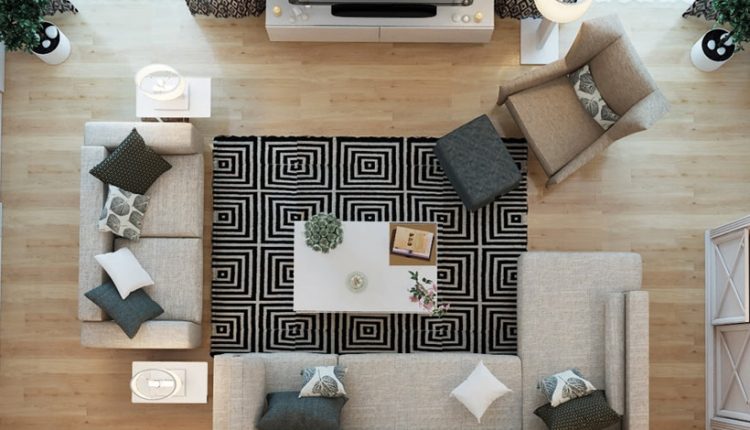Harmonious Havens: Enhancing Your Home with Feng Shui Furniture Arrangement
Arranging furniture according to Feng Shui principles can transform a living space, promoting harmony, balance, and positive energy flow. Feng Shui, an ancient Chinese practice, involves organizing our surroundings in alignment with nature to enhance well-being and prosperity. This article delves into key Feng Shui concepts for furniture arrangement, offering practical tips to create a serene and vibrant home environment.
Understanding the Bagua Map
The Bagua map is fundamental in Feng Shui, serving as a guide to connect different areas of a space with aspects of life. It divides a space into nine sections: Wealth & Prosperity, Fame & Reputation, Love & Marriage, Family & Health, Center (Tai Chi), Children & Creativity, Knowledge & Wisdom, Career, and Helpful People & Travel. Positioning furniture and choosing colors and elements for each area according to the Bagua map can enhance specific aspects of your life.
The Living Room: Heart of the Home
The living room, a central gathering place, should be inviting and comfortable. Arrange seating in a circular or octagonal shape to promote equal and open conversation. Ensure the sofa has a solid wall behind it for support and security, and avoid placing it directly in line with the front door to prevent energy from rushing out. Incorporating plants can add life energy, while mirrors can enhance the space’s brightness and feel.
The Bedroom: Sanctuary for Rest
In the bedroom, the bed’s placement is crucial. Position it so you have a clear view of the door from where you sleep, without being directly in front or in line with it, known as the “command position.” This provides a sense of security and control. Ensure there’s equal space on either side of the bed to foster balanced relationships. Avoid placing the bed under a window or with the headboard against a bathroom wall to prevent energy drain. Soft, soothing colors and minimal electronic devices are recommended to promote restful sleep.
The Kitchen: Source of Nourishment
The stove, representing wealth and nourishment, should be positioned in a commanding spot, allowing the cook to see the entrance without being directly in line with it. If this isn’t possible, use mirrors to correct the line of sight. Keep the stove clean and use all burners equally to encourage wealth distribution. The arrangement of the kitchen should promote ease of movement and accessibility, avoiding clutter.
The Home Office: Space for Productivity
For a home office, place the desk in the command position, facing the door but not directly in line with it. A solid wall behind the desk provides stability, while a clear view of the door enhances control and opportunities. Keep the space organized and clutter-free to encourage clear thinking and productivity. Incorporating greenery can boost creativity and reduce stress.

General Tips for Furniture Arrangement
- Clear Clutter: Clutter obstructs the flow of Qi (energy) and can negatively impact mental clarity and emotional well-being. Regularly decluttering and organizing is essential.
- Promote Balance: Balance the use of different materials and shapes. Round shapes promote a gentle, nurturing energy, while square and rectangular shapes offer stability and balance.
- Ensure Good Qi Flow: Arrange furniture to allow for easy movement and avoid blocking pathways. The flow of energy should be smooth and unobstructed throughout the space.
- Use of Color: Colors play a significant role in Feng Shui. Choose colors that correspond to the Bagua area you wish to activate. For example, green can promote growth in the family area, while pink can support love and relationships.
- Incorporate the Five Elements: Wood, Fire, Earth, Metal, and Water elements can be balanced in your furniture and decor to harmonize energy
in your home. Each element corresponds to different areas of the Bagua map and aspects of life. For instance, incorporating metal accents can enhance the areas of children and creativity, while water features like aquariums or fountains can boost career prospects.
Incorporating Feng Shui principles into furniture arrangement isn’t about adhering to strict rules but about creating a harmonious and inviting space that supports your well-being and goals. By considering the flow of energy, the importance of balance, and the symbolic meaning of different areas of your home, you can create an environment that nurtures positivity, comfort, and prosperity. Remember, the most crucial aspect of Feng Shui is how a space feels to you; it should be a reflection of your personal style and a place where you feel at peace and rejuvenated.

